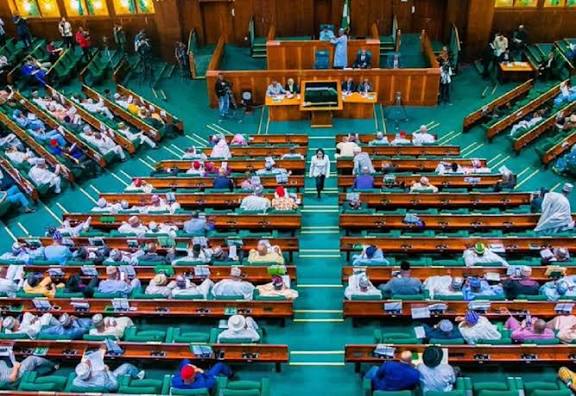
Garba Mohammed
The Nigerian House of Representatives has approved a bill for second reading aimed at granting greater independence to the Economic and Financial Crimes Commission (EFCC) by limiting the President’s power to remove its chairman.
The bill, sponsored by Plateau State lawmaker Yusuf Gagdi, was debated during Thursday’s plenary session presided over by Deputy Speaker Benjamin Kalu. Gagdi explained that the amendment is necessary to modernize the EFCC’s legal framework, ensuring the agency can effectively tackle evolving financial crimes such as cybercrime, cryptocurrency fraud, illicit financial flows, terrorism financing, and real estate-based money laundering.
Under the current law, the President can remove the EFCC Chairman at his discretion, without seeking approval from the National Assembly. Critics argue that this exposes the agency to political interference and undermines public confidence in its operations.
The proposed amendment seeks to change this by requiring a two-thirds majority approval from both the Senate and the House of Representatives before the removal of the EFCC Chairman can take effect. According to Gagdi, this safeguard would help insulate the EFCC from undue political influence and strengthen its credibility.
“The EFCC currently operates under outdated provisions that do not address the realities of modern financial crime,” Gagdi said. “This bill is a critical step toward ensuring the Commission functions as a professional, independent, and transparent institution, capable of responding to contemporary challenges while promoting good governance, economic stability, and public trust.”
Supporting the move, Abia State lawmaker Ginger Onwusibe, Chairman of the House Committee on Financial Crimes, described the amendment as long overdue, highlighting that many modern financial crimes are not addressed under the original 2004 Act.
The bill was unanimously passed for second reading and referred to the relevant House committee for further legislative scrutiny. If enacted, it is expected to strengthen the EFCC’s autonomy and align Nigeria’s anti-corruption framework with global best practices, enhancing its capacity to fight financial crime effectively.
